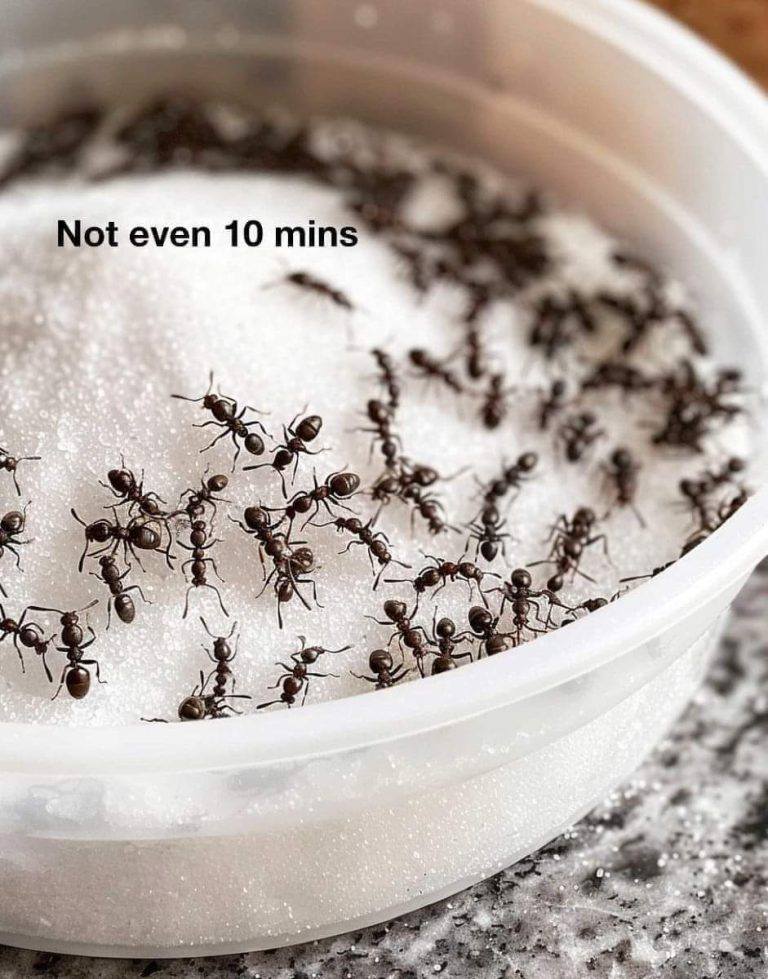ADVERTISEMENT
#### Instructions:
1. **Mix**: Combine equal parts of vinegar and water in a spray bottle. If you want to add essential oils, just a few drops will do.
2. **Shake**: Shake the bottle well to ensure the vinegar and water are thoroughly mixed.
3. **Spray**: Spray the solution directly onto ant trails, entry points, or areas where you’ve seen ants. Be sure to target spots where ants are entering your home, such as doorways, windowsills, and cracks in walls or floors.
### Where to Use Your Vinegar Spray
To maximize the effectiveness of the vinegar solution, apply it in key areas where ants are most active:
1. **Ant Trails**: If you’ve spotted a trail of ants marching across your kitchen counter or along the floor, spray the vinegar solution directly on the trail. Ants will lose the scent trail and likely abandon the path.
2. **Entry Points**: Look for places where ants are entering your home, such as cracks in walls, windows, and doors. Spray along these areas to prevent further invasions.
3. **Around the Trash**: Ants are often attracted to food sources like trash bins. Spraying vinegar near your trash can, compost bin, or any place where food crumbs accumulate can deter them from gathering around these areas.
4. **Food Storage Areas**: If you find ants near your pantry or kitchen, spray vinegar around these areas and wipe down surfaces to eliminate any traces of food residue.
### Additional Tips for Ant Control
While vinegar is a fantastic natural solution for ants, there are a few extra steps you can take to ensure they don’t return:
1. **Keep Your Home Clean**: Ants are often drawn to crumbs, spills, and food residues. Keeping your home clean, especially your kitchen and dining areas, will make it less inviting to ants.
2. **Seal Entry Points**: In addition to spraying vinegar, consider sealing cracks, gaps, and openings around windows, doors, and baseboards. This will prevent ants from finding their way inside.
3. **Diatomaceous Earth**: If the vinegar solution isn’t enough to fully eradicate a persistent ant problem, you can sprinkle diatomaceous earth in areas where ants are frequent. It’s a natural substance that kills ants by drying out their exoskeletons.
4. **Cinnamon and Other Natural Repellents**: Ants dislike strong scents like cinnamon, citrus, and essential oils. You can sprinkle ground cinnamon or place cinnamon sticks near entry points to discourage ants from entering.
### Why Choose Vinegar Over Pesticides?
While chemical-based ant sprays and pesticides may seem like an easy solution, they come with several downsides:
1. **Toxic Chemicals**: Pesticides often contain harmful chemicals that can be dangerous to children, pets, and the environment. Vinegar, on the other hand, is safe for use around the home.
2. **Health Risks**: Some ant sprays can cause skin irritation, breathing problems, or allergic reactions. Natural solutions like vinegar are non-toxic and free of harsh chemicals, making them a safer choice for families.
3. **Environmental Impact**: Chemical pesticides can harm beneficial insects, pollute the air, and contaminate water sources. Vinegar is eco-friendly and biodegradable, so it doesn’t pose a risk to the environment.
### Final Thoughts: A Simple, Natural Solution
As the weather heats up and ants become more active, it’s important to have an effective and safe way to handle their invasion. The vinegar and water solution is a proven, natural, and affordable way to tackle the problem without resorting to harmful chemicals. Not only will this method help you get rid of pesky ants, but it will also keep your home smelling fresh and free of toxic substances.
Next time ants invade your kitchen or home, reach for that bottle of vinegar — it’s a simple trick that will leave you amazed at how well it works. Happy ant-free living!
ADVERTISEMENT
